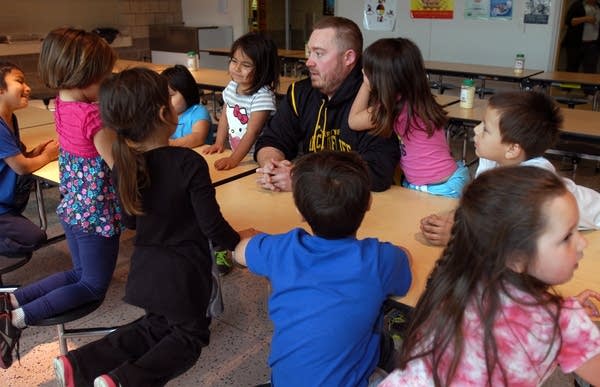Five tips for kindergartners’ FIRST first day of school

Seth Houglum gathers his kindergarteners to get ready for lunch at Circle of Life Academy in April 2017.
Vickie Kettlewell for MPR News 2017
Go Deeper.
Create an account or log in to save stories.
Like this?
Thanks for liking this story! We have added it to a list of your favorite stories.


